With the recent events in the Middle East and the continuing question of what, if any, role the U.S. should play, it’s a good idea to stay up to speed on current events in the region. My recent post “A Crisis of Faith in Egypt” was a start, but it’s a sad commentary on the turmoil in the region that, even since then, there is so much that needs to be said. I had originally wanted to do a individual post on many of these items, but then I realized there were so many things that have happened lately that are worth talking about that I decided to bring them all together under one heading. So, let’s get down to business:
- It shouldn’t surprise anyone that the Muslim Brotherhood is speaking out of both sides of its mouth when it comes to how it presents itself in the Western media versus Arabic language media. The BBC has a great article up analyzing this. The two people the BBC specifically singles out for criticism are Jihad al-Haddad ( also known as Gehad al-Haddad), the Muslim Brotherhood’s spokesman, and Mohammed al-Beltagi, a senior leader of the group. Their section on the latter gives a good example of what’s happening. While preaching the virtues of peace and democracy to the West, among his own people:
In contrast, Mr Beltagi has taken a more hardline tone when addressing Muslim Brotherhood supporters and Arabic-language media. Privately-owned daily Al-Tahrir quotes Mr Beltagi as telling protestors in Rabaa al-Adawiyah on 3 July: “Say goodbye to your mother, father, and wife, because you will sacrifice your soul to defend Muhammad Morsi’s legitimacy.”
As the Egyptian Presidency began to warn protesters that they would break up pro-Morsi sit-ins if they did not voluntarily vacate, Mr Beltagi urged supporters on 11 August to remain in Rabaa square, telling them “your brothers in Algeria gave the greatest example when they offered a million martyrs. We, for the sake of peoples’ freedom and dignity, are capable of offering more than that in exchange for the ouster of the occupation”.
A video circulating online and on television in July shows Mr Beltagi saying: “[The Muslim Brotherhood] are not controlling the current violent upheaval in Sinai, however what is happening in Sinai is in response to that military coup, [the violence] will stop once [Army Chief] Abdul Fattah al-Sisi ends the coup.”
And, as the article notes, this is hardly the first time the Muslim Brotherhood has engaged in this kind of doublespeak. That’s what a language barrier will do in situations like this, but one of the upsides to having Egyptian Christian friends is that you know infidels that speak Arabic.
- In my earlier post, I noted how Coptic Churches had been ransacked and destroyed by supporters of the Muslim Brotherhood and groups similarly aligned with the Islamists. I neglected to mention that the Egyptian Army has vowed to rebuild the damaged churches. As Hotair’s Allahpundit rightly notes:
This is, I think, designed not only to solidify Christian support for the military in Egypt (which was already solid) but to signal to western Christians who are reading news stories about massacres that the military’s the protector of pluralism against Islamism. And that PR will help if/when Egypt needs a loan from the IMF, which might otherwise be inclined not to do business with an outfit that’s shooting protesters in the street.
It’s a classic example of pragmatic politicking, but it’s also a great gesture–and the right thing to do. The Egyptian Army isn’t perfect, but they are the closest thing we have to friends in the situation in Egypt.
- While we’re on the subject, France 24 posted a great article yesterday on what the devastated Coptic Churches look like. It’s also worth checking out their article from last week on the same subject.
- The big news over the past couple of days in the US is about Secretary of State John Kerry’s Monday press conference on Syria. The general consensus on the press conference is that it indicates that the U.S. is preparing to take some sort of military action against Assad very soon. The Washington Post gets it right when they say, “It was, from the first paragraph to the 15th,a war speech.” The quotes from Secretary of Defense Chuck Hagel in this Tuesday article from the UK’s Guardian back up the initial consensus. He said:
“We are prepared, we have moved assets in place to be able to fulfil and comply with whatever option the president wishes to take, if he wishes to take any of the options he’s asked for,” he told the BBC. “We are ready to go, like that.”
- It’s worth what an attack on the Assad regime would mean. As the UK”s Independent Rightly notes, fighting against Assad would place us on the same side as al-Qaeda. It’s a sad day when Dennis Kucinich is a voice of reason, but his statement that striking Syria would effectively turn us into al-Qaeda’s Air Force is essentially correct. Russia is also warning of “catastrophic consequences” if the US attacks. It’s possible, of course, that this is saber rattling, but for an administration that promised a “reset” of relations with Russia, this is hardly a step forward. It’s certainly not a popular move, either, as a Reuters/Ipsos poll published Monday notes that only 9% of Americans favor a strike on Syria. Even if it can be proven that Assad has used chemical weapons, that only moves the needle to 25% support. As the Washington Post notes, that 9% number makes a strike on Syria even less popular than Congress.
- With the distinct possibility that President Obama would take military action against Syria without Congressional authorization, it is worthwhile to revisit then-Senator Joe Biden’s threat to impeach President Bush if he went to war with Iran without similar authorization.
- While the Obama administration insists that the evidence that Assad is the one behind the chemical weapon attacks is undeniable, there are those that wonder if the rebels might actually be the perpetrators. Bastion of conservative thought NPR is one of them. This might be the right time to revisit my post from late September of last year about some Syrian chemical weapons held by Assad that were reported to have gone missing.
- While I have my issues with Reason magazine and its website’s stances on some issues, their list “8 Reasons Not to Go to War in Syria” really is worth recommending. The charity Oxfam America’s plea to the White House to “show courage against the tide of war” is also worth a look.
- Megan McArdle’s column at Bloomberg News advocating for asylum for Egyptian Christians is a policy the definitely merits serious consideration. I’d extend the same offer to Syria’s Christians, too, if such a policy were to be enacted. There is some precedent for this in the United States’ policy toward German and Austrian Jews during and before World War II.
I realize I have gone on a bit long here, but if you’ll indulge me, I’d like to close with a few personal remarks. The Syrian Civil War is a fight between essentially two evils. If either of them is a “lesser evil”, it isn’t by much. As someone who attends an Antiochian Orthodox Church (which is part of the larger Eastern Orthodox Church), whose see is based in Damascus, support for the rebels is tantamount to guaranteeing continued persecution for Syria’s dwindling Christian population. At the same time, while Assad has been friendlier to the Christians, he has, gas attacks or not, committed all kinds of atrocities against his own people as he struggles to maintain his hold on power. It as also worth noting that Iran is a big supporter of Assad, and it’s possible, although unconfirmed, he might have made a surprise visit to Tehran Tuesday evening.. There is no unambiguously good side here, folks. It is almost certainly in our best interest to stay out of this militarily and maintain a careful watch on the happenings in the country. In my “Crisis of Faith” post, I referred to a report by Representative Frank Wolf (R-VA) that merits mentioning here as well. It should be required reading for anyone wanting to opine on where America should stand on events in the Middle East. His conclusions on Syria are probably the sagest advice we’ll find in Washington these days:
- The situation in Syria is complex and there is no easy solution. Many believe it will take years to resolve. Will Assad continue to cling to power with the help of Tehran? Will Syria fracture? Will the rebels attempt to form a legitimate shadow government in Syria that can garner international support? There are more questions than answers about the future of Syria. But even before the civ-il war broke out, Assad’s abuses were well-known.
Not only was he a brutal, corrupt dictator at home, but Damascus was a lifeline to the terrorist organization Hezbollah. I have seen with my own eyes Hezbollah’s murderous aims having visited the Marine barracks in Lebanon following their 1983 bombing that killed 241 American servicemen.
Fast-forward to earlier this month, as Hezbollah was implicated in the deadly bomb attack on Israeli vacationers in Bulgaria. Clearly Assad has much blood on his hands and the U.S. must work, even at this late date, to bring about an end to Assad’s reign in Syria.- The Obama Administration missed an early opportunity to aid the opposition in Syria at a time when the conflict had not yet devolved into a proxy war and when international jihadists were not as significant of a factor as they are today. An already complex environment has only intensified, and many of Syria’s minorities increasingly wonder what the future holds for them. A January 15, New York Times story said, “Former [State Department] Syria adviser, Frederic C. Hof, wrote last month that although the opposition has offered general assurances to the one-third of Syrians who belong to minority groups, ‘probably no more than a handful’ believe it, especially as jihadist groups grow more prominent on the battlefield….” As the Obama Administration seeks to develop an effective Syria policy, including Secretary Kerry’s latest overture to the Syrian opposition, it must be ever mindful of the very real concerns of Syria’s Christian community. Opposition to Assad should not be enough to garner American support. A common enemy does not our friend make. Any aid to the rebels, non-military or otherwise, must be accompanied by insistence that the opposition respect minority rights and allay the very real fears of these communities. This is especially important given the influx of foreign jihadists and the ambiguity surrounding their influence and numbers among the opposition.
- Christian leaders in the West must begin to speak out about what is happening not only in Syria but in the Middle East and other parts of South Central Asia. Christian leaders from the Middle East need to be brought to the United States to meet with church leaders here and make the case for greater engagement from the faith community in the West. (In January, I wrote to more than 300 Protestant and Catholic leaders in the U.S. urging them to use their influence to speak out on behalf of the persecuted church around the globe—specifically in the Middle East.).
I’m going to close by paraphrasing the end of my “Crisis of Faith” post: Friends, it is late, but it is not too late. The Middle East’s Christians deserve our attention, and we should do what we can to speak out on their behalf and support them. Call your Congressman and the President, tell your friends, talk about it with the people you go to church with, say a prayer, donate money to a respectable charity or at your church. We can all do something, whether it’s great or small.

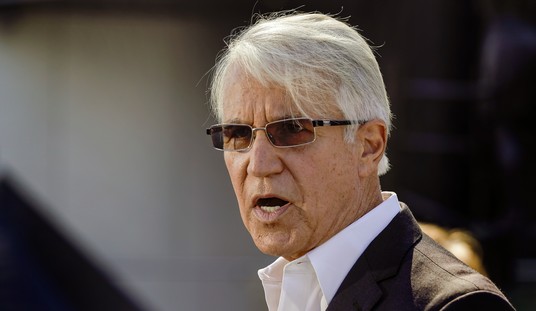
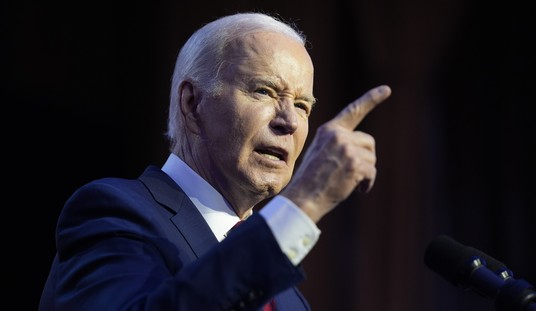


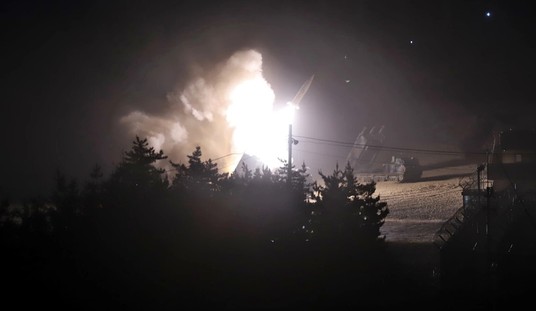

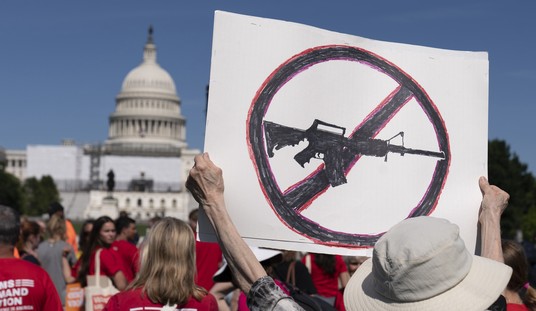

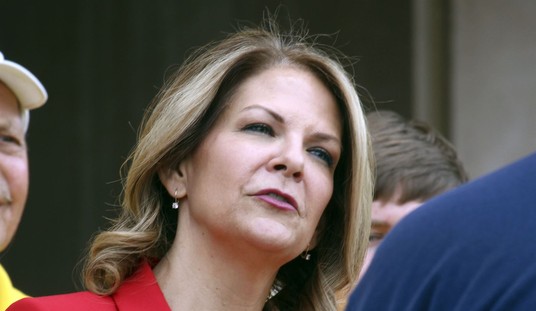
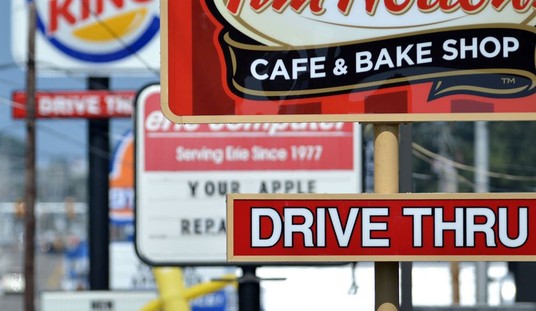


Join the conversation as a VIP Member